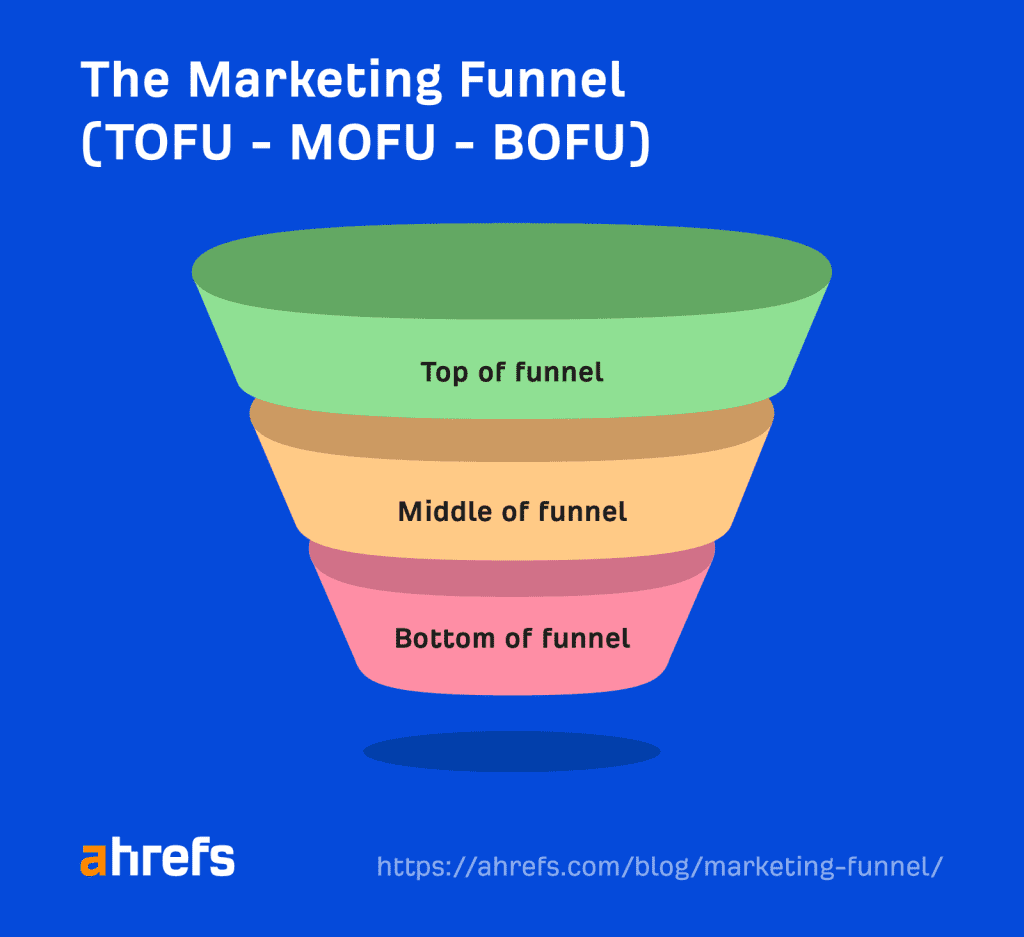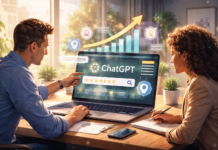Key Takeaways
- Strategic Alignment Yields Results: Achieve marketing success by fostering alignment between marketing and sales teams.
- Tech-Driven Optimization: Navigate the marketing funnel with precision using advanced tools like CRM systems, marketing automation, and analytics.
The integration of AI, AR, and VR promises a future where tech innovation enhances customer engagement and drives conversions. - Trust and Ethics in Focus: As privacy regulations evolve, prioritize transparent data practices. Ethical marketing not only aligns with consumer values but also builds lasting brand loyalty.
In the intricate landscape of digital marketing, the marketing funnel stands as a guiding beacon, illuminating the path from initial customer awareness to eventual conversion.
Understanding the nuances of this dynamic framework is not just a strategic advantage but a prerequisite for crafting successful marketing campaigns in the contemporary business arena.
This comprehensive exploration unveils the core essence of the marketing funnel – what it is, how it operates within the realm of marketing, and why it is indispensable for businesses aiming to navigate the complex journey of customer acquisition and retention.

Decoding the Marketing Funnel: A Strategic Imperative
The marketing funnel, often likened to a journey, is a strategic model that delineates the stages a potential customer traverses before making a purchasing decision.
From the broad spectrum of initial awareness to the focused culmination in conversion, each stage plays a pivotal role in shaping customer perceptions and influencing behaviors.
This exploration delves into the layers of the funnel, deciphering its anatomy and unraveling the mechanisms that drive successful marketing outcomes.
Unveiling the Stages: Awareness, Consideration, and Conversion
At its core, the marketing funnel comprises distinct stages, each catering to specific facets of the customer’s decision-making process.
The journey commences with the broad strokes of awareness, where businesses strive to capture attention and generate interest. Subsequently, the consideration stage refines this interest, nurturing it into a more focused evaluation of products or services.
Finally, the conversion stage materializes as the apex, where a lead transforms into a customer through a well-crafted call to action. Understanding these stages is pivotal for tailoring strategies that resonate with the diverse needs and preferences of the audience.
Strategies for Each Funnel Stage: Crafting a Cohesive Narrative
As we traverse the marketing funnel, the strategies employed at each stage play a defining role in orchestrating a seamless customer journey.
From content marketing initiatives that captivate during the awareness phase to personalized experiences that guide prospects through consideration, businesses need a diverse toolkit.
Email campaigns, social media engagement, and targeted advertisements further enhance the effectiveness of these strategies, creating a cohesive narrative that accompanies customers from their first encounter to the decisive moment of conversion.
The Role of Personalization: Elevating Customer Experiences
Central to the success of the marketing funnel is the art of personalization.
In an era where consumers crave tailored experiences, businesses must adapt their strategies to cater to individual needs.
Leveraging data-driven insights, businesses can create personalized content, recommendations, and interactions that resonate with the unique preferences of their audience.
Navigating Challenges: From Bottlenecks to Breakthroughs
While the marketing funnel is a powerful ally, it is not without its challenges.
This exploration does not shy away from addressing common bottlenecks such as misalignment between marketing and sales teams, inadequate lead nurturing strategies, and the need for continuous optimization through A/B testing.
By dissecting these challenges, businesses gain actionable insights into overcoming hurdles and transforming them into opportunities for growth.
Tools, Technologies, and Trends: The Dynamic Trio
No discussion on the marketing funnel is complete without delving into the tools, technologies, and emerging trends shaping its evolution.
From Customer Relationship Management (CRM) systems that streamline interactions to marketing automation tools that optimize repetitive tasks, businesses wield a diverse arsenal.
The section on emerging trends casts a futuristic gaze, exploring the integration of AI, augmented reality (AR), virtual reality (VR), and the pivotal role of influencers.
This dynamic trio — tools, technologies, and trends — forms the backbone of a resilient and forward-thinking marketing strategy.
As we embark on this insightful journey through the marketing funnel, businesses and marketers alike are poised to uncover the strategic depth and untapped potential within this framework.
Whether you are a seasoned professional seeking to fine-tune your approach or a newcomer navigating the complexities of digital marketing, this exploration promises a wealth of knowledge and actionable insights.
Join us as we decode the marketing funnel, demystify its intricacies, and equip you with the tools to orchestrate a symphony of successful marketing campaigns in the ever-evolving landscape of the digital age.
But, before we venture further, we like to share who we are and what we do.
About AppLabx
From developing a solid marketing plan to creating compelling content, optimizing for search engines, leveraging social media, and utilizing paid advertising, AppLabx offers a comprehensive suite of digital marketing services designed to drive growth and profitability for your business.
AppLabx is well known for helping companies and startups use digital marketing to drive web traffic to their websites and web apps.
At AppLabx, we understand that no two businesses are alike. That’s why we take a personalized approach to every project, working closely with our clients to understand their unique needs and goals, and developing customized strategies to help them achieve success.
If you need a digital consultation, then send in an inquiry here.
The Marketing Funnel: What It Is & How It Works For Marketing
- Understanding the Stages of the Marketing Funnel
- How the Marketing Funnel Works
- Tools and Technologies for Optimizing the Marketing Funnel
- Common Challenges and How to Overcome Them
- Future Trends in Marketing Funnels
1. Understanding the Stages of the Marketing Funnel

Top of the Funnel (TOFU): Building Awareness and Attracting Prospects
Definition and Purpose
At the inception of the marketing funnel lies the Top of the Funnel (TOFU), dedicated to creating brand awareness and capturing the attention of potential customers.
This phase serves as the entry point for individuals who might be unaware of your brand but have the potential to become leads.
Strategies for TOFU
- Content Marketing Initiatives: Craft engaging blog posts, articles, and informative videos to establish your brand as an authority in your industry.
Businesses that have embraced content marketing have conversion rates nearly 6x higher than their counterparts who haven’t. - Social Media Presence: Leverage the power of social platforms to reach a wider audience. With over 4.59 billion people using social media worldwide, platforms like Facebook, Instagram, and LinkedIn can be instrumental in building brand visibility.
- Search Engine Optimization (SEO): Optimize your website content for search engines to increase organic visibility. 75% of Internet users never scroll past the first page of search results.
Middle of the Funnel (MOFU): Engaging and Nurturing Leads
Definition and Purpose
Moving down the funnel, the Middle of the Funnel (MOFU) is where leads transition into potential customers.
Here, the focus shifts from broad awareness to building relationships and nurturing leads with targeted content.
Strategies for MOFU
- Email Marketing Campaigns: Craft personalized and targeted email campaigns to nurture leads. Statista reports that the number of global email users is set to grow to 4.73 billion users in 2026.
- Educational Webinars and Workshops: Hosting webinars or online workshops can provide in-depth insights into your products or services.
Research indicates that 73% of B2B marketers and sales leaders consider webinars as the most effective method for generating high-quality leads. - Lead Magnets and Gated Content: Offer valuable resources like e-books, whitepapers, or exclusive content in exchange for contact information.
Companies with over 30 landing pages get 7 times more leads compared to companies that use fewer than 10.
Bottom of the Funnel (BOFU): Converting Leads into Customers
Definition and Purpose
At the bottom of the funnel, the primary goal is conversion.
Leads nurtured through the TOFU and MOFU stages are now ready to make a purchasing decision, making the Bottom of the Funnel (BOFU) a critical phase for closing deals.
Strategies for BOFU
- Personalized Product Demos: Provide personalized demonstrations to showcase how your product or service solves specific pain points.
- Exclusive Offers and Discounts: Incentivize conversions with exclusive discounts or limited-time offers.
- Customer Testimonials and Examples: Showcase success stories to build trust and credibility. A survey found that 91% of people read them and 84% trust them as much as they would a personal recommendation.
By strategically navigating these stages of the marketing funnel, businesses can optimize their customer acquisition process, foster meaningful relationships, and drive conversions effectively.
Understanding the nuances of each stage empowers marketers to tailor their approaches, ensuring a seamless journey for potential customers from awareness to advocacy.
2. How the Marketing Funnel Works

Customer Journey Mapping: Deciphering the Path Through the Funnel
Understanding the Customer’s Path
The effectiveness of the marketing funnel lies in its ability to map and cater to the customer’s journey.
A holistic understanding of this journey allows marketers to tailor strategies to specific touchpoints, ensuring a personalized and engaging experience for potential customers.
Importance of Personalized Experiences
- Personalization Impact:
- Personalized emails generate six times higher transaction rates than non-personalized ones.
- Research found that 80% of consumers are more likely to make a purchase when brands offer personalized experiences.
Content Marketing in the Funnel: Crafting Relevance Across Stages
Creating Relevant Content for Each Funnel Stage
Content marketing plays a pivotal role in guiding prospects through the marketing funnel.
Tailoring content to match the informational needs of each stage enhances engagement and facilitates a smoother transition from awareness to conversion.
Aligning Content with Customer Needs
- Content Relevance:
- Example: HubSpot’s Content Strategy:
- HubSpot’s content hub provides a wealth of resources, from beginner guides to expert-level content, catering to users at various stages of their marketing journey.

Role of Social Media in the Funnel: Beyond Brand Awareness
Leveraging Social Platforms for Brand Awareness
Social media is not just a top-of-the-funnel tool; it plays a multifaceted role throughout the marketing funnel.
Utilizing platforms strategically can foster community, provide customer support, and drive conversions.
Engaging and Interacting with Potential Customers
- Social Media Impact:
- Example: Nike’s Engagement on Instagram:
- Nike’s Instagram engages followers with a mix of product showcases, athlete stories, and interactive content, creating a dynamic and inclusive brand experience.
3. Tools and Technologies for Optimizing the Marketing Funnel

Customer Relationship Management (CRM) Systems: Nurturing Relationships and Driving Growth
Tracking and Managing Customer Interactions
Customer Relationship Management (CRM) systems play a pivotal role in understanding and optimizing the customer journey.
These platforms allow businesses to track and manage interactions, providing a centralized hub for customer data.
Enhancing Customer Experience Through CRM
- ROI of CRM:
Marketing Automation: Streamlining Processes for Efficiency and Personalization
Streamlining Repetitive Tasks in the Funnel
Marketing automation tools are designed to streamline repetitive tasks, enabling marketers to focus on strategic planning and creative endeavors.
Automation enhances efficiency and ensures a consistent and personalized approach to customer engagement.
Personalization and Segmentation with Marketing Automation
- Impact of Automation on Lead Generation:
Content Management Systems (CMS): Fueling Content-Driven Marketing Strategies
Content Creation and Distribution
These Content Management Systems (CMS) are fundamental tools for creating, managing, and distributing content across digital platforms. A robust CMS empowers marketers to maintain a consistent and engaging online presence.
SEO-Friendly Content and CMS
- SEO Impact of CMS:
- Example: WordPress and SEO Optimization:
- WordPress, a popular CMS, offers plugins and features for SEO optimization, contributing to its widespread adoption. WordPress is used by 45.8% of all websites on the internet.
Analytics and Data Visualization Tools: Informed Decision-Making for Optimal Results
Comprehensive Data Analysis
Analytics and data visualization tools are indispensable for understanding the performance of marketing strategies.
These tools provide insights into customer behaviour, campaign effectiveness, and areas for improvement.
Importance of Data-Driven Decision-Making
- Data-Driven Marketing:
- Organizations that are “leaders” in data-driven marketing report far higher levels of customer engagement and market growth than their “laggard” counterparts.
- Example: Google Analytics for Website Performance:
- Google Analytics offers detailed insights into website traffic, user behaviour, and conversion rates, empowering marketers to make informed decisions. As of 2021, Google Analytics is used by over 80% of websites on the internet.
Social Media Management Tools: Orchestrating a Cohesive Social Presence
Social Media Scheduling and Engagement
The main role of Social Media Management Tools is streamlining the process of scheduling posts, monitoring interactions, and analyzing performance across various social platforms.
These tools are essential for maintaining a consistent and impactful social media presence.
Impact of Social Media on Brand Perception
- Brand Awareness and Social Media:
- Example: Hootsuite’s Social Media Success:
- Hootsuite, a popular social media management platform, has been instrumental for businesses in managing multiple social accounts, resulting in increased brand visibility and engagement.
A/B Testing Tools: Fine-Tuning Campaigns for Optimal Performance
Optimizing Campaign Effectiveness
A/B testing tools enable marketers to experiment with variations of campaigns, landing pages, and elements within the funnel. This iterative approach helps identify the most effective strategies for driving conversions.
Impact of A/B Testing on Conversions
- Conversion Rate Optimization (CRO):
- A/B testing is a crucial component of CRO, and the average A/B test improves conversion rate by 49%.
- Example: Optimizely’s A/B Testing Success:
- Optimizely’s platform has empowered businesses like Microsoft and IBM to optimize their digital experiences, resulting in substantial improvements in conversion rates.
4. Common Challenges and How to Overcome Them

Identifying and Addressing Common Bottlenecks in the Marketing Funnel
Lack of Alignment Between Marketing and Sales Teams
- The Challenge:
- Misalignment between marketing and sales teams can hinder the smooth transition of leads through the marketing funnel, leading to missed opportunities and inefficiencies.
- Overcoming the Challenge:
- Implementing a Service Level Agreement (SLA) between marketing and sales teams can foster collaboration. Organizations with tightly aligned sales and marketing teams saw 27 per cent faster profit growth and 36 per cent higher customer retention.
Inadequate Lead Nurturing Strategies
- The Challenge:
- Insufficient lead nurturing can result in lost opportunities, as leads may not be sufficiently educated or engaged to progress through the funnel.
- Overcoming the Challenge:
- Implement automated drip campaigns that deliver relevant content at each stage of the funnel. Research indicates that companies that excel at lead nurturing generate 50% more sales-ready leads at a 33% lower cost.
Continuous Optimization and A/B Testing Strategies
Ineffective Use of Data and Analytics
- The Challenge:
- Many businesses struggle to derive actionable insights from the data they collect, hampering their ability to optimize marketing strategies.
- Overcoming the Challenge:
- Utilize advanced analytics tools to derive meaningful insights. Companies that use data visualization are 5 times more likely to make faster decisions and 3x more likely to execute them than their competitors.
A/B Testing Fatigue and Ineffective Experimentation
- The Challenge:
- Overreliance on A/B testing without a clear strategy can lead to testing fatigue and inconclusive results.
- Overcoming the Challenge:
- Develop a structured testing plan, focusing on key elements in the funnel.
Future-Proofing the Funnel: Adapting to Emerging Trends
Evolving Consumer Behavior and Expectations
- The Challenge:
- Rapid changes in consumer behaviour, influenced by emerging technologies, can catch businesses off guard if they fail to adapt.
- Overcoming the Challenge:
- Stay informed about emerging trends and invest in technologies that align with changing consumer expectations. A study found that eighty-eight per cent of customers say the experience a company provides is as important as its products or services.
Integration of Emerging Technologies
- The Challenge:
- Integrating new technologies into the marketing funnel can be challenging without a clear understanding of their impact.
- Overcoming the Challenge:
- Pilot new technologies in controlled environments before full integration. Augmented reality (AR) and virtual reality (VR) experiences, for example, can increase customer engagement. The AR & VR market is projected to generate revenue of US$38.6 billion in 2024.
5. Future Trends in Marketing Funnels

Evolving Consumer Behavior and Its Impact on the Funnel
The Shift Towards Hyper-Personalization
- Emerging Trend:
- Consumer expectations are evolving, with an increasing demand for hyper-personalized experiences throughout the marketing funnel.
Rise of Voice Search and Conversational Marketing
- Emerging Trend:
- Voice search is becoming increasingly prevalent, leading to a rise in conversational marketing strategies.
- Businesses that adopt conversational marketing are 80% more likely to retain customers.
Integration of Emerging Technologies in Marketing Strategies
Embracing Artificial Intelligence (AI) and Machine Learning (ML)
- Emerging Trend:
- AI and ML are revolutionizing marketing strategies by enabling predictive analytics, personalized content recommendations, and chatbot interactions.
- The global AI market value of nearly 100 billion U.S. dollars is expected to grow twentyfold by 2030, up to nearly two trillion U.S. dollars, with marketing being one of the key industries driving this growth.
Augmented Reality (AR) and Virtual Reality (VR) Experiences
- Emerging Trend:
- AR and VR technologies are creating immersive brand experiences, especially in industries like retail and real estate.
- The global extended reality (XR) market that includes augmented reality (AR), virtual reality (VR), and mixed reality (MR) reached 29.26 billion U.S. dollars in 2022, rising to over 100 billion U.S. dollars by 2026, driven by the increasing adoption of these technologies in marketing and advertising.
- 61% of customers prefer to shop in stores that offer AR experiences, and 40% of customers are willing to pay more to experience products through AR.
The Role of Influencer Marketing in Shaping the Funnel
Amplifying Brand Messages Through Influencers
- Emerging Trend:
- Influencer marketing continues to evolve, with brands increasingly relying on influencers to amplify their messages and build authentic connections with audiences.
- Brands can earn up to $18 in earned media value for every dollar spent on influencer marketing, with an average of $5.78 per dollar spent.
Nano and Micro-Influencers for Targeted Engagement
- Emerging Trend:
- Brands are turning to nano and micro-influencers to achieve more targeted and authentic engagement with niche audiences
- Micro-influencers see 60 per cent higher campaign engagement rates than their larger following counterparts.
- Nano-influencers have the highest engagement rate of any influencer type, at 8.8 per cent.
Adapting to Privacy Regulations and Consumer Trust Concerns
The Impact of Privacy Regulations on Marketing Practices
- Emerging Trend:
- Privacy regulations, such as GDPR and CCPA, are influencing how businesses collect and use customer data, necessitating a more transparent and consent-driven approach.
- 65% of global consumers are more willing to engage and shop with brands that tell them exactly what they will do with their data.
Building Trust Through Ethical Marketing Practices
- Emerging Trend:
- Ethical marketing practices, including transparent communication and sustainable initiatives, are gaining prominence as consumers prioritize brands aligned with their values.
- 73% of Gen Zers are willing to pay more for sustainable products.
- Brands perceived as ethical and authentic are more likely to build long-term customer loyalty.
Conclusion
In the ever-evolving realm of digital marketing, understanding the intricacies of the marketing funnel is paramount for businesses striving to forge meaningful connections with their audiences.
We’ve embarked on a comprehensive exploration of the marketing funnel, delving into its stages, strategies, and the tools that drive its efficacy.
From the broad strokes of awareness at the top of the funnel to the intricacies of conversion at the bottom, each stage plays a pivotal role in guiding potential customers on a journey toward brand advocacy.
The Dynamic Nature of Consumer Behavior
As we stand at the crossroads of traditional marketing and the digital age, one cannot ignore the seismic shifts in consumer behaviour.
The emergence of hyper-personalization, driven by data analytics and AI, has redefined the expectations consumers have from brands.
It’s no longer sufficient to cast a wide net; businesses must embrace tailored, individualized experiences that resonate with the unique preferences and needs of each customer.
The rise of voice search, conversational marketing, and the incorporation of augmented reality and virtual reality experiences underscore the need for marketers to stay ahead of the curve.
The Tech-Infused Future: Tools and Technologies
Our journey through the marketing funnel has been intertwined with the utilization of cutting-edge tools and technologies.
Customer Relationship Management (CRM) systems have empowered businesses to build lasting relationships, while marketing automation has streamlined processes, allowing for personalized and efficient customer journeys.
Content Management Systems (CMS), analytics tools, social media management platforms, and A/B testing tools have all played pivotal roles in optimizing the funnel for maximum impact.
Facing Challenges Head-On
In acknowledging the challenges that marketers encounter, we’ve discussed strategies to address common bottlenecks.
From the imperative need for alignment between marketing and sales teams to the continuous optimization through A/B testing, businesses can employ these strategies to ensure a smoother journey through the funnel.
The importance of data-driven decision-making, highlighted by the integration of analytics tools, serves as a beacon in navigating the complexities of the modern marketing landscape.
A Glimpse into Tomorrow: Future Trends
Our gaze into the future reveals exciting prospects and challenges alike. The demand for hyper-personalization and the integration of emerging technologies are reshaping the landscape.
Influencer marketing, with a spotlight on nano and micro-influencers, is becoming an integral part of brand strategies, while ethical marketing practices and transparency are gaining prominence in the age of data privacy concerns.
The Evergreen Importance of Trust and Ethics
As we conclude this comprehensive journey through the marketing funnel, one recurring theme echoes loudly — the paramount importance of trust and ethics.
Privacy regulations necessitate a transparent and consent-driven approach to data usage. Ethical marketing practices not only resonate with the values of consumers but also contribute to long-term loyalty and brand advocacy.
In the grand tapestry of marketing, the funnel stands as a dynamic framework, adapting to technological advancements, shifts in consumer behavior, and the ever-changing landscapes of privacy and ethics.
As businesses navigate this intricate path, armed with insights, strategies, and a commitment to customer-centricity, they are poised not just to weather the changes but to thrive in the challenging and rewarding world of modern marketing.
In embracing the marketing funnel and all its complexities, businesses embark on a journey of continuous refinement, adaptation, and growth.
The funnel is not just a tool; it’s a compass guiding marketers through the seas of consumer expectations, technological innovations, and the evolving dynamics of the marketplace.
May your marketing journey be prosperous, insightful, and filled with the satisfaction of meeting and exceeding the expectations of your audience.
If you are looking for a top-class digital marketer, then book a free consultation slot here.
If you find this article useful, why not share it with your friends and business partners, and also leave a nice comment below?
We, at the AppLabx Research Team, strive to bring the latest and most meaningful data, guides, and statistics to your doorstep.
To get access to top-quality guides, click over to the AppLabx Blog.
People also ask
What are marketing funnels and how do they work?
Marketing funnels are structured paths that guide potential customers through stages of awareness, consideration, and conversion. They work by systematically nurturing leads, leveraging targeted strategies at each stage to optimize customer engagement and drive desired actions, ultimately leading to conversions.
What is the marketing funnel as an effective way of a business strategy?
The marketing funnel is a strategic framework that maps a customer’s journey, from initial awareness to conversion. By tailoring content and strategies to each stage, businesses create a systematic approach to attract, engage, and convert leads, maximizing the effectiveness of their marketing efforts.
What is funnel analysis in marketing?
Funnel analysis in marketing involves examining and optimizing the customer journey through different stages, from awareness to conversion. It helps businesses identify points of entry, drop-offs, and opportunities for improvement, ensuring a more effective and streamlined marketing process.




































